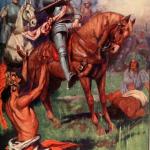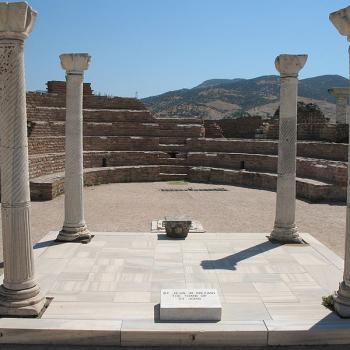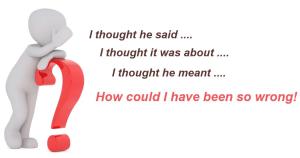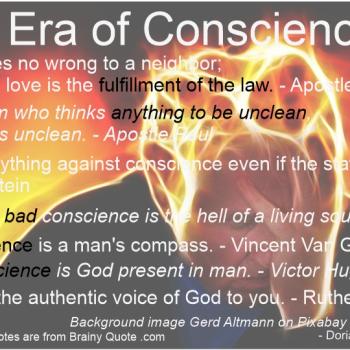Working with new generations (Gen Z) – Series
We always look for stability, particularly as it supports our treasured beliefs and our identity. Churches offer a piece of both. We fear change, especially if it undermines financial security.

Image by Geralt on Pixabay
“When He got into the boat, His disciples followed Him. And behold, there arose a great storm on the sea, so that the boat was being covered with the waves; but Jesus Himself was asleep.
“And they came to Him and woke Him, saying, “Save us, Lord; we are perishing!” He said to them, “Why are you afraid, you men of little faith?” Then He got up and rebuked the winds and the sea, and it became perfectly calm. The men were amazed, and said, “What kind of a man is this, that even the winds and the sea obey Him?” – Matthew 8:23–27 (NASB)
For any little change in the church it’s as if the very foundations of our faith were being shaken out of place. Can we not cling to God is love and depend on this? Or is our faith so weak that Jesus has to appear and calm the storms?
End of the church era?
This may very well be the end of this era of the church. Religion has eras. We tend to think of the church as having been one monolithic structure all through history. In reality it has followed the path of ancient Judaism as a history of change, and with those changes came different beliefs.
Jesus was a reformer who helped people understand what was important in Judaism, and made changes that were essential such as ending sacrifice and the need for priests. If Jesus came today and said we’re getting rid of pastors, priests, Lent, Easter, Christmas, confession, and the need to go to church, you can understand the kind of uproar he would create for the establishment who would instantly reject him. For example, it’s beyond comprehension for many that church services could be online.
Were the changes in church history merited? What I will do is ask you to use the stricter standard of law that asks, “Beyond a reasonable doubt?” Or at least appeal to the lesser standard of civil law, “More likely than not.” The standard of belief and conduct for Christianity is love.
The first centuries of Christianity – the Apostles
Was there a real person called Jesus, and were there really apostles? Judge for yourself from the history we know. (There are references from the time such as from Tatian, Polycarp, Eusebius, and others but I won’t list those.)
Jesus had his followers (disciples) but there was no “church.” He sent his twelve Apostles (not disciples) into the world to create his “ecclesia,” which means assembly. The thought might have come from the synagogue, which was a place of Jewish religious instruction present in most towns in Galilee.
There were Jewish teachers who were becoming known as “rabbis,” who were mostly pharisees who taught in villages and synagogues. We’re not aware of any buildings of the church from that time period, or organizational structure. People met where they could.
The followers of Jesus (disciples) tended to be much less mobile in general than the Apostles, although some did accompany them at times. Both men and women felt the call to service and the Apostle Paul called some women (Junia and Andronicus) “apostles,” which was a very unusual role for women and even men of that era. The Apostles were formally the twelve appointed by Jesus.
Early church meetings
In the first couple of Centuries Christians mostly met in people’s homes. They talked about and resolved local issues, and read letters from the apostles. There was no building and few leaders, with services led by individuals. Often many individuals spoke (praising God) during services.
The Origins of Christian Morality: The First Two Centuries, by Wayne A. Meeks, covers the very early era and is interesting reading.
Later as the church grew there were priests and bishops, and in today’s church the priest or pastor is often the only speaker and is paid.
The end of the apostle era was around the year 100. There were no more letters of advice from the apostles, and the Book of John was the capstone of that era, having been written from the collective memory of several apostles. For a while others may have taken the leadership reigns and wrote letters to the churches in the tradition of one apostle or another which whom they were familiar.
Early churches in the first Centuries
Christianity started in Jerusalem, but they were chased out and they moved 300 miles North to Antioch in Syria which became the missionary base for the Apostles. Antioch was a large, thriving city originating primarily from Hellenist (Greek) advances going back 300 years before Jesus’ time. Antioch contained Greeks and Jews. The first followers of Jesus in Antioch were called “Followers of the Way,” but soon became known as Christians.
Several divisions emerged as the church grew
“Syriac Orthodox Patriarchate of Antioch and All the East, is an Oriental Orthodox Church with autocephalous patriarchate founded by Saint Peter and Saint Paul in the 1st century, according to its tradition. The Syriac Orthodox Church is part of Oriental Orthodoxy, a distinct communion of churches claiming to continue the patristic and Apostolic Christology ….” – Antioch, Wikipedia
Don’t worry, I don’t understand what “Patriarchate” and “autocephalous” church lingo mean either. One sounds anti-feminist and the other looks like encephalitis or hydrocephalus to me and those aren’t fun diseases.
The Eastern Orthodox Church, which cites the Apostles Peter and Paul as founders, resulted from apostles going East from Syria-Turkey. They went into areas now known as Russia and Slovakia.
The Oriental Orthodox Church is more on the African Continent. It also cites Apostolic beginnings. It split away from the Roman Church in the 5th Century, over the divine-human nature of Christ.
The church at Rome, which became the Roman or Roman Catholic Church, was started by Peter and Paul.
There grew significant differences between the Eastern and Western branches of Christianity such as some elements of the Nicene Creed in 325 CE. Eastern Orthodox finally separated from the Rome Church in the 10th Century as disagreements grew over such things as the authority of the Pope, with both Eastern and Western claiming direct apostolic succession through Bishops. Most likely all groups of that time could claim they were from the original apostles.
The Apostle John went to the congregation at Ephesus with other apostles. He continued there to his death in 100 CE. That church survived until around 200 CE.
Saint Mark took Jesus’ word to Egypt. His teachings were the foundation of the Coptic Church that developed there. The Church of Martyrs Sergius and Bacchus in The Cave, also known as Abu Serga dates to the early Fourth Century. The Coptic Church split away from the Roman Church in 425 CE over differences in theology, and has remained split.
Other countries
Christianity quickly grew in other countries, such as France. In the first Century (before 100 CE) Christian communities were already growing rapidly in France and later in Germany. “According to long-standing legend, Mary [Mary Magdalene. Jesus’ mother reportedly went with the Apostle John to Ephesus], Martha, Lazarus, and some companions, who were expelled by persecutions from the Holy Land, traversed the Mediterranean in a frail boat with neither rudder nor mast and landed at Saintes-Maries-de-la-Mer near Arles. Provençal tradition names Lazarus as the first bishop of Marseille, while Martha purportedly went on to tame a terrible beast in nearby Tarascon. Pilgrims visited their tombs at the abbey of Vézelay in Burgundy.”
It’s easy for people to say that Jesus and Christianity were just myths. Jesus type movements were begun by his apostles in many areas shortly after the death of Jesus. These were organized and exchanged letters, slowly starting and nurturing communities of faith. The writings of the Apostles remain to this day as books in the Bible. Polycarp actually knew the Apostles. As the church grew it gained bishops and historical figures such as Tatian, Eusebius, and Origen, who are historically connected to the early church and apostles. This is a small taste of the history of the early church.
Questions: Do you think the preponderance of evidence supports Jesus and the Apostles were historical figures beyond a doubt, or are more likely than not, or possibly just a myth? Do you think Christianity would have so quickly displaced other religions if it didn’t have meaning and power to the people?
There are other traditions influenced by the Apostles
The finding of Christian documents in a cave at Nag Hammadi in Egypt, near Cairo and the earliest Coptic Church, include The Gospel of Mary (likely Mary Magdalene), the Gospel of Thomas, the Apocryphon of John, the Sophia of Jesus Christ, and a summary of the Act of Peter. They date to as early as 90 CE. These appear to have a Gnostic influence. Gnostics emphasized personal spiritual knowledge above the orthodox (right) teachings.
Whether any of these writings were known at the time the Canon was created in ~400 CE is unknown. Some of these may have been related to Gnosticism, which the church banned as heretical (not right in the head). The writings have different pictures of Christian belief than in the official canon.
Various traditions, sometimes supported by minimal evidence, has the Apostles going to Spain, England, India, and many other countries, with churches there pointing to relics from their ministry or citing the Apostles as founders. Most of the Apostles, except John, met violent deaths because of their ministry.
Whatever Happened to the Twelve Apostles? – Christianity.com
Dispersion of the Apostles. – Wikipedia
Take Home Points
The church was divided in its opinions from the earliest times. There have always been minor and major differences. Just as today, some of the early churches believed that they were and are the only true church because they were from certain Apostles (Roman Catholic and Oriental Orthodox).
There were many different traditions about Jesus and his teachings. These are reflected in the Gnostic teachings and the documents found at Nag Hammadi. Others are mentioned by early church leaders.
Christianity and Jesus were very unlikely to have been myths. They were very organized movements led by apostles who pointed to Jesus’ teachings. People like Polycarp are cited by others in literature of the time, and he knew the apostles.
The standard of belief and conduct for Christianity is love. Legal standard.
Series Links
Church Eras and Chang – Part 2
The organized church – Change Part3
New Era of Change – Part 7 – LGBTQIA++
New Era of Change – Part 8 – LGBTQIA++
New Era of Change – Part 8b – LGBTQIA++
Law and Love – New Era of Change – Part 9 – LGBTQIA++
Deconstruction – New Era of Change – Part 10 – LGBTQIA+
Apostle Paul on LGBTQ – – New Era of Change – Part 11
Paul and same sex activity – New Era of Change, Part 12 – LGBTQ Final
New Era of Change – Conscience and Reassessment
Additional Resources
New Generations Walk with Jesus: The missions in a changing world (by author on Amazon). Young adults not only don’t find what they need in churches, they’re pushed away, and they have a no tolerance policy for the nonsense they see in churches. How do you minister to them? Answers.
Promiscuous America: Smart, Secular, and Somewhat Less Happy. Institute For Family Studies.
How Casual Sex Can Affect Our Mental Health. Psychology Today
https://christianstudies.wordpress.com/2011/05/14/230/
Free Speech – Rabbi Berel Wein.
Judaism and the Gays: Part 1 – Dealing with Mishcav Zachar. Oral Torah.
Sexual Morality? Is it the same today as in 1200 BCE?
Some series references:
How to Keep Millennials Engaged in Church – on Patheos
What Is Meant by Truth? – on Patheos
Tabernacle of Hate – False Religion – on Patheos
10 Reforms Christianity Needs to Make Right Now – on Patheos
___________________
Our answer is God. God’s answer is us. Together we make the world better.
– Dorian














